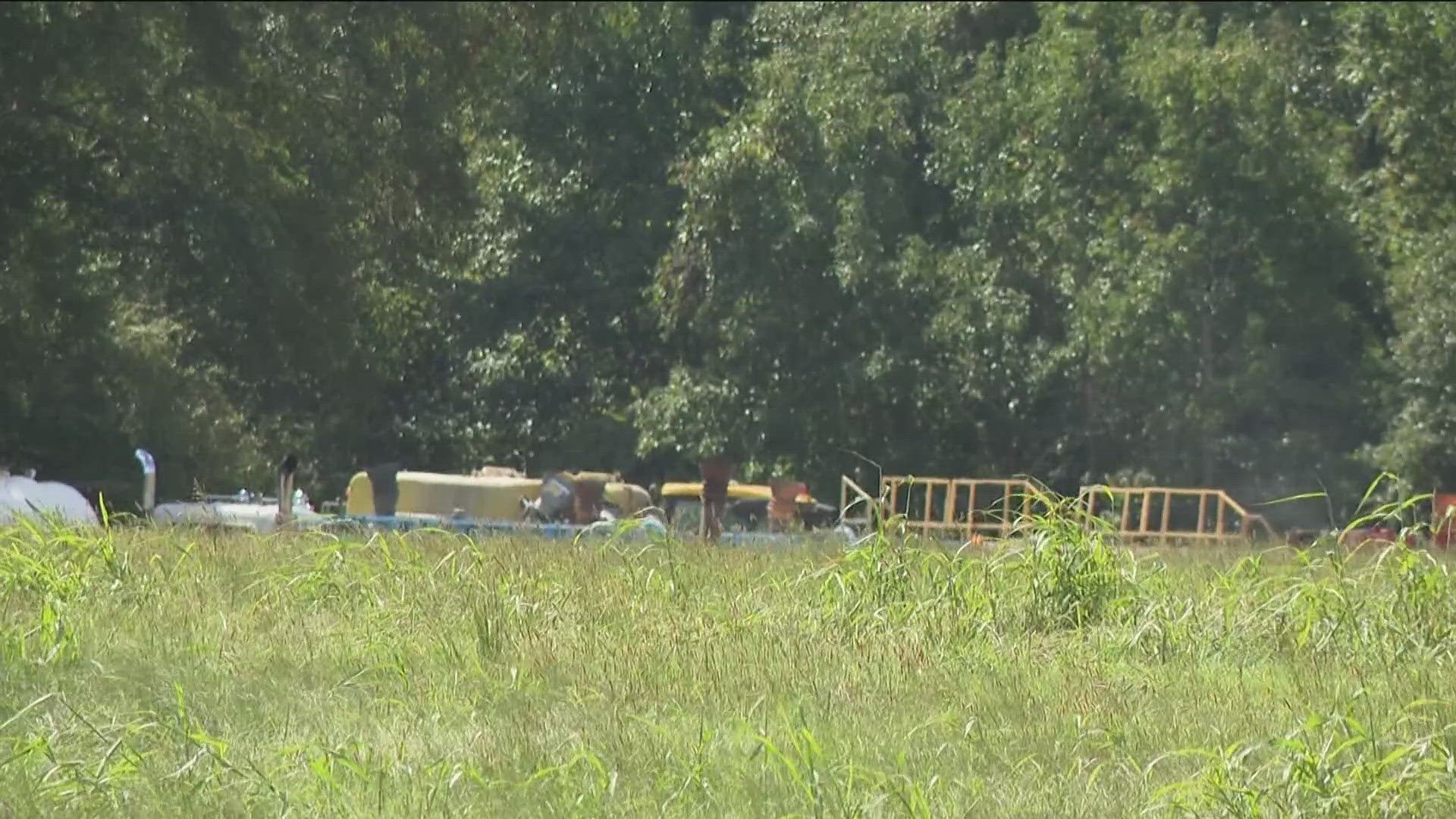ATLANTA — Spirits were high outside Gov. Kemp’s office Monday among backers of a House bill that would restrict, ever so slightly, the spreading of often-pungent chicken sludge on fields in rural Georgia.
"It’s a small development. The bill itself is very surgical," said state Rep. Rob Leverett (R-Elberton), the bill's sponsor. "But it’s something. It’s the first soil amendment bill we’ve had in several years."
“Soil amendment” is the cleaned-up term used for the foul-smelling chicken sludge spread on fields, like the one 11Alive covered last fall not far from the Oconee County home of Leslie Morrow.
"I grew up here. I’m all about fertilization. But this is unlike anything that I’ve ever smelled or even seen before," Morrow previously said.
Months later, in Taliaferro County, residents said trucks spread it on a field near a creek, prompting a state environmental protection division investigation – and an EPD fine.
Yet residents said even after that, trucks continued to spread the sludge on the property legally.
The program has driven residents of mostly rural areas in northeast Georgia to complain to the state Department of Agriculture about the foul odors produced by some "soil amendment" concoctions, much of which comes from slaughterhouses.
The bill passed this spring makes it a violation of state law “to distribute a soil amendment on a site…. when the Environmental Protection Division has issued a notice of violation.”
"This has been a huge loophole. That is now closed," said Tanya Bonitatibus, the Savannah Riverkeeper, who has been pushing for years for more restrictions on so-called soil amendments
Bonitatibus attended Monday's bill signing at the capitol. She said the state’s vast agriculture interests mostly protect the soil amendment program.
"The waste that’s being generated is from the number one industry in Georgia, right? So there are a lot of economic drivers to keep these (sludge-producing) companies going," she said after Kemp signed the measure.
But Bonitatibus is still cautiously optimistic that scientific innovation may start to solve some of the odor problems with chicken sludge.
Meanwhile, critics said they actually want to see the program succeed because, ultimately, it’s a recycling program -- if it’s not abused.

